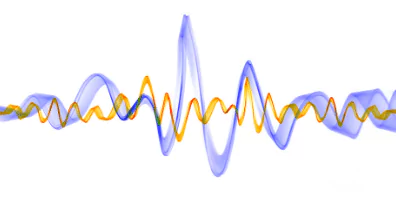Everyone loves to sing. It's a great way to express yourself, have fun, and even make money. Nevertheless, some of us have difficulty with singing.
In this episode of The Intelligent Vocalist podcast with John Henny, he discussed the benefits of engaging in physical activities to help enhance our singing voice. From vocal warm-ups and practice sessions to tips on improving your breath control and range, here are some ways to improve your singing through physical movements.
What Creates Sound?

We might have known that vibrations cause sound. John shares that the air travels to the vocal folds. The vocal folds close, compress the air, and then open up, which causes molecules to expand and collide.
As a result, you get these compression waves, followed by the dissociation and recompression of molecules. After that, our vocal tract will enhance and filter the sound waves that are produced.
However, he also mentions how deep down within us is a whole mental, physical, and spiritual aspect involved in the vibrations in our body and our being. In the body, everything is connected to everything. Movement in the body creates change and flow. These can either result in positive or negative changes, and because everything is connected, the voice can be affected.
Factors that Interfere with Our Singing
Although there are many factors that can impede our singing, John mentions four factors that we should pay attention to.
Age

Age is just a number, right? That's what they say, anyway. But when it comes to singing, age can be a pretty significant factor.
The human voice is a fantastic thing. It's a complex system of muscles, ligaments, vocal cords, and other tissues that work together to produce sound.
Just like any other muscle in your body, the vocal cords can weaken with age. Our vocal cords begin to deteriorate and lose some of their elasticity. This can lead to a loss of vocal range, flexibility, power, and a change in tone. Additionally, the muscles around the vocal cords can weaken, making it difficult to control our pitch and produce the desired sound. All these factors can interfere with our ability to sing as we age.
Stress

When stressed, our bodies go into fight-or-flight mode, which means that our breathing becomes shallower and our muscles tense up. This can make it challenging to sing with proper technique and produce a good sound.
As John pointed out, when we are overwhelmed or filled with anxiety, we often question our sensations and criticize ourselves and our singing technique too much. When we do this, it usually leads to unsuccessful outcomes or overexertion.
Hence, he advised that we must get our bodies free from stress. We should focus on our breathing and try to let go of any tension we're feeling.
Instrument

As singers, our bodies are our instrument. The way we breathe, our posture, and the way we use our vocal cords, mouth, and throat all contribute to the quality of our voice. If we don't maintain and use them correctly, it can negatively affect our singing.
One common issue is incorrect breath support. This means either not using enough air or using too much air when singing. This can cause a number of problems, such as loss of pitch, the strain on the vocal cords, and difficulty hitting high notes.
Another common issue is incorrect vowel placement. This means that the tongue and teeth are not positioned correctly when forming vowel sounds. This can lead to a number of problems, such as muddled words, unclear vowel sounds, and a generally less pleasant tone.
In order to sing properly, it is important to be aware of these issues and learn how to avoid them. Listen to your body; play with it, and not against it.
Breathing

Breathing is one of the most important functions of the human body, and it's also necessary for singing. The way we breathe affects the movement of our vocal cords. We require a higher breath cycle as we sing, in contrast to speaking. It entails a higher rate of breath energy, as well.
Developing the right breathing technique can improve your vocal range, give your voice greater strength, enhance sound projection, and make your tone more pleasant. Ensuring the proper amount of pressure is applied to your larynx and vocal folds will also safeguard your vocal health.
Why You Need Physical Movements
The body and the voice are interconnected. When we use our bodies correctly, it helps our voices function accurately as well. That's why physical movements are essential for singers.
Here are three reasons why you need physical movements when you sing:
The body affects the voice

It's no secret that the body affects the voice. Both beginner singers and professional, famous singers have to use their bodies to produce sound. It can show in their singing if they're not in healthy physical condition.
When we move our bodies, it helps us to open up our chest and lungs, which allows us to take in more air. This extra air can help us to sustain more extended notes and phrases when singing.
John suggested that stretching and yoga can help us become more flexible and fit, as these physical activities are beneficial to the body. It will give us awareness and control, which can lead to benefitting our singing.
Strengthen mind-body connection

Many people often overlook the importance of physical movement when it comes to singing better. However, the mind-body connection is crucial because it allows your mind and body to work together more efficiently. When this connection is strong, it can help you to control your breath, use your muscles correctly, and produce a clear tone.
Physical movement helps to strengthen the mind-body connection by promoting blood flow and oxygenation to the brain, which allows the brain to function more effectively. Additionally, when this communication is improved, it can help us to control our breathing and use our vocal cords more effectively.
Alleviate stress and fear

The vocal control system may become uncoordinated during extended periods of muscle tension in the voice box. It's why the voice box's controlling muscles tighten during stressful times.
There's a group of muscles that surround the larynx, which become tense when a singer is anxious. Despite not being the main vocal fold movers, these muscles are connected to the laryngeal cartilages and can therefore influence the voice.
One way to combat this is to focus on your movements. Pay attention to how your body is moving and use that awareness to help you relax. Try to keep your movements fluid and natural. Focusing on something tangible, like your body and movements, will help you stay in the moment and keep your mind from wandering into worry territory.
Physical Activities that Improve Your Singing

There is a very close relationship between physical movements and singing. Many people need to realize that how you use your body can have a big effect on your vocal quality.
When you move your body, you use more muscles, which helps to build strength and endurance. Physical activity increases blood flow to the vocal cords, which helps to keep them healthy and lubricated. Moving around also helps to release tension from the body, which can lead to better vocal production. Additionally, they can help improve breathing by increasing the efficiency of the respiratory system.
Yoga, as John mentioned, is an excellent choice for strength-training exercises that also promote good posture. He also said that the following physical activities are helpful in singing better:
Final Words
It's important to remember that physical movement is an essential part of improving your singing voice. By engaging in regular physical activities, you can help to strengthen your mind-body connection, release tension and fear, and improve your posture and breath support. You can take your singing to the next level with the right combination of physical activity and vocal practice.
Staying in Touch
If you want to know more about John, you can visit johnhenny.com. There you can listen to previous episodes of The Intelligent Vocalist podcast, as well as access his blog posts. Join John's mailing list to get special offers that are exclusive to his mailing list, and stay up to date on new courses and books.